On Charlottesville anniversary, NFL anthem debate reignites: Reporter's Notebook
ABC News' Zachary Kiesch looks at the root of the NFL anthem debate.
Laquan McDonald never played in the National Football League.
Yet the 17-year-old, who was shot and killed by a Chicago police officer in 2014, may have been part of the inspiration for one of the game's most recognized players, Colin Kaepernick -- who sparked a national movement in part because of young black men dying at the hands of police.
The quarterback, whose kneeling during the national anthem in the 2016 NFL season led to widespread protests, maintained from the beginning that his silent demonstration was never, as has been alleged, about disrespecting the military.
It was about victims of police shootings like Laquan McDonald, whose only apparent crime when he was shot 16 times was having a small knife in his hand.
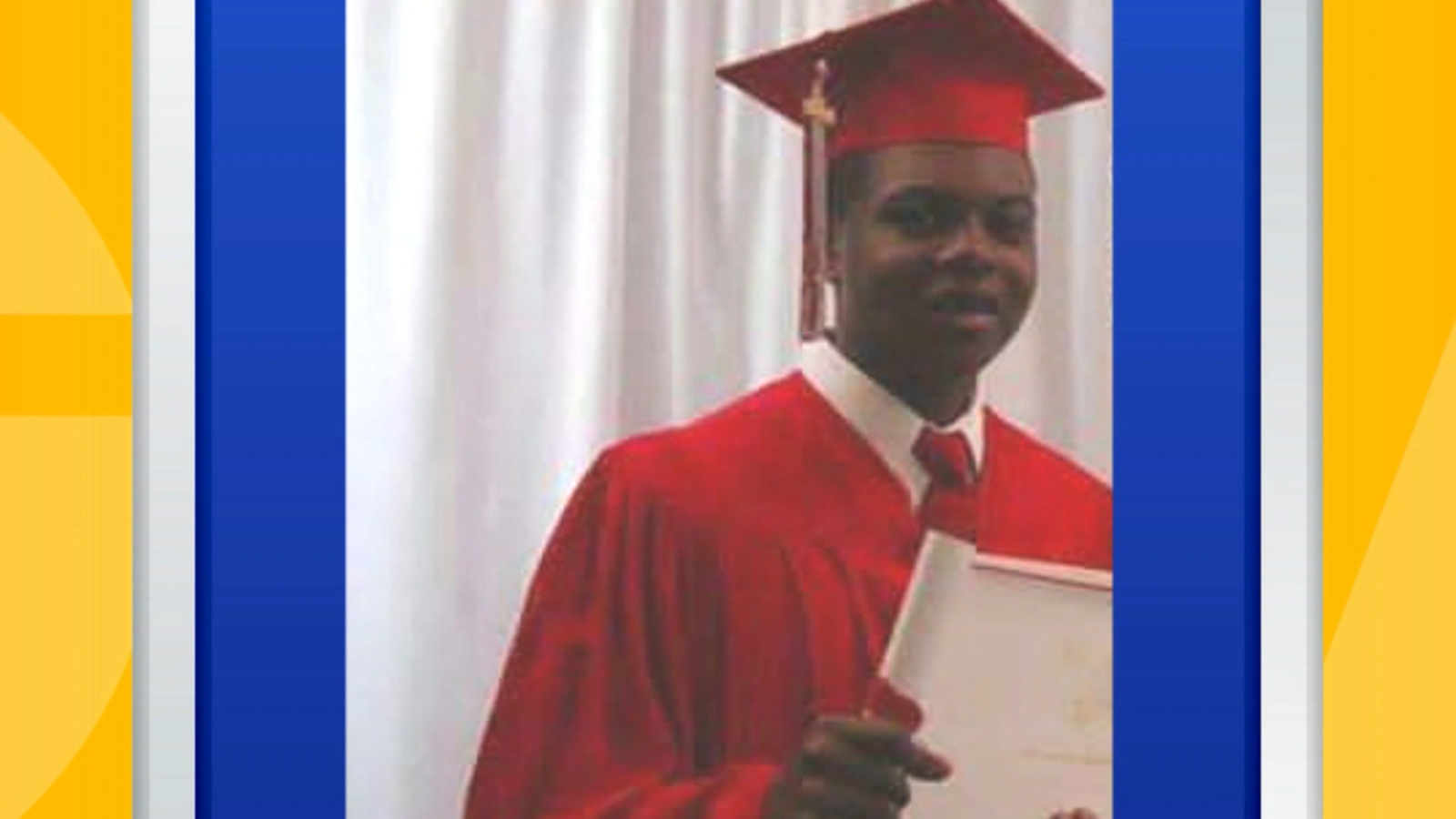
“I’ve been very clear from the beginning that I’m against systematic oppression,” Kaepernick, who hasn't played football since the end of that 2016 season, said at the time. “Police violence is just one of the systems of oppression. For me, that is something that needs to be addressed but it’s not the whole issue.”
For all the talk about football in general and Kaepernick in particular, very little time has been given to the issues that he hoped to address.
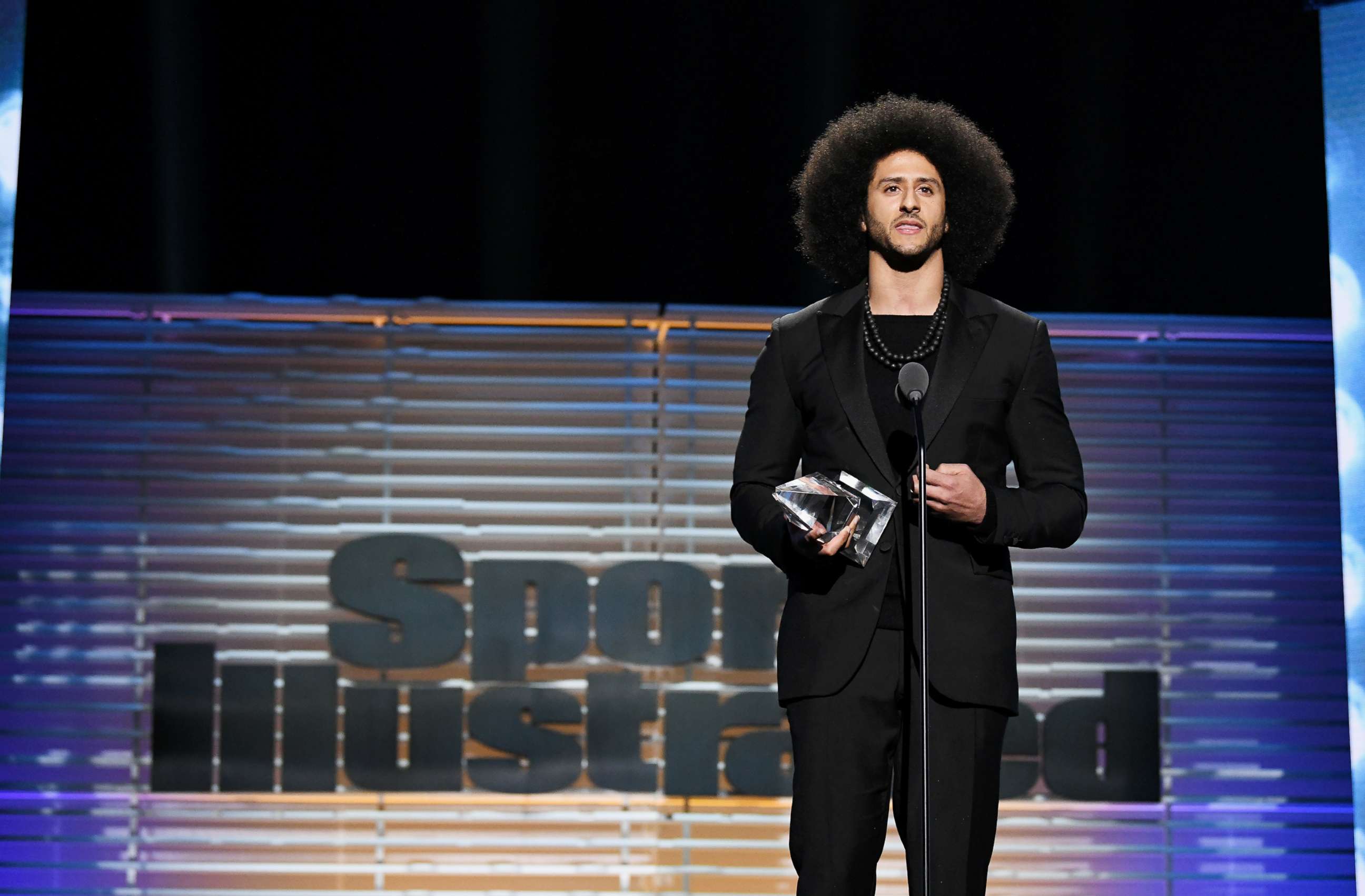
Prisons are still packed, public schools are crumbling and clean drinking water in places like Flint is still elusive.
The inequality at the heart of Kaepernick's protests disproportionately affects the poor and people of color.
The NFL is America's new pastime, many have said, and considered a distraction from everyday life. Yet the national anthem debate, among other societal issues, has seemingly unveiled contradictions -- while some see a game that fosters community beyond race or class, others see it as a microcosm of society's ills.
For one, the league is a multi-billion dollar operation run by wealthy white team owners, yet is driven largely by the performance of black athletes who risk their long-term health.
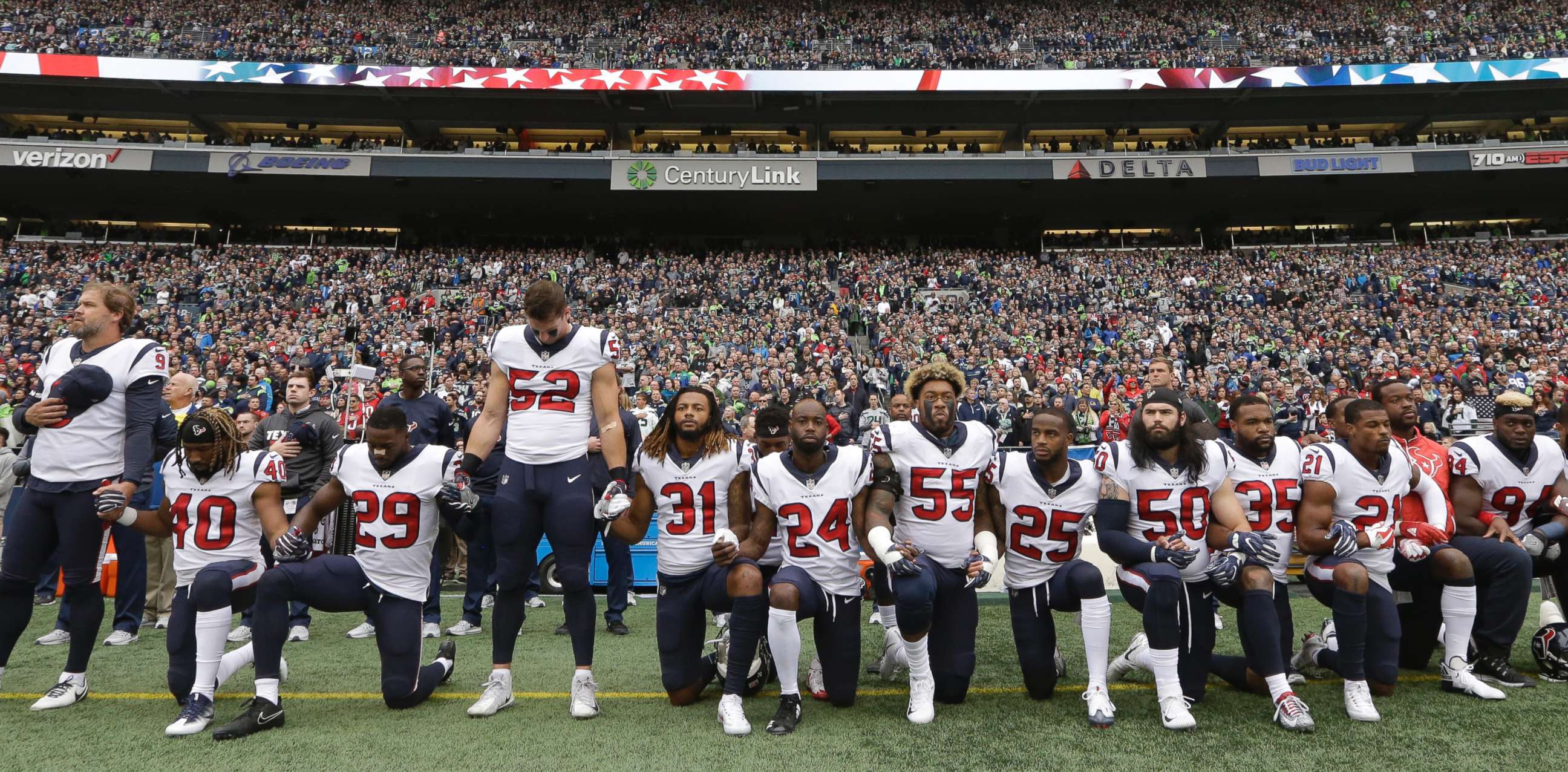
And now, players, perhaps once content to just play, are recognizing their platform.
Another one of the alleged victims who would seemingingly fall under Kaepernick's mention of "police violence" was Stephon Clark. When police caught up with Clark in the backyard of his grandmother's house earlier this year, one yelled, “Gun, Gun, Gun!”
Clark was shot and killed and had nothing but a cell phone in his hand. His crime? He allegedly was breaking into cars.
When asked at the time if President Donald Trump would weigh in, Sarah Sanders, the White House press secretary, called it “a local matter.”
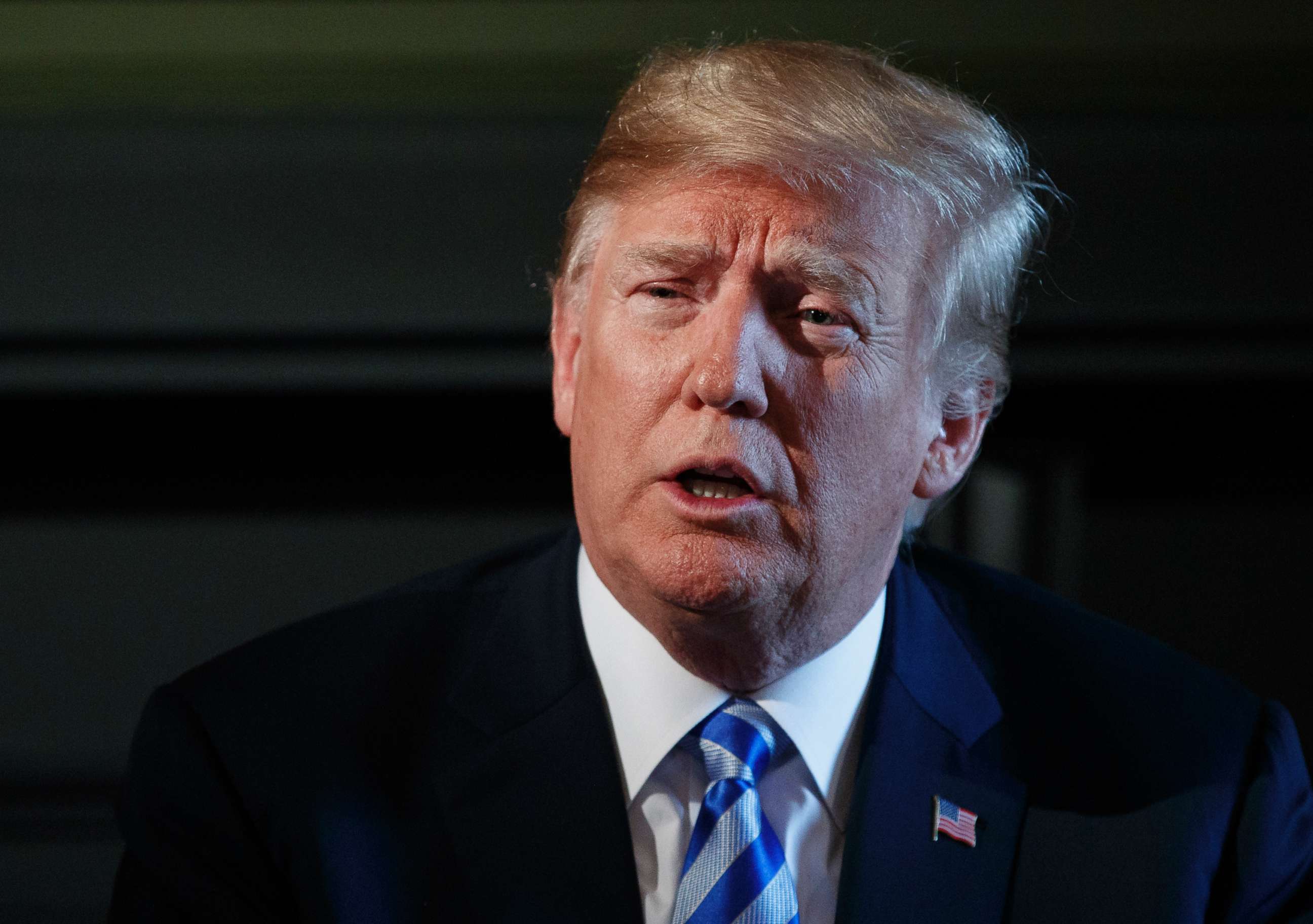
But this past Thursday night, as more than 20 NFL teams opened up preseason play -- and several players again took a knee or raised a fist in protest -- the president weighed in.
“The NFL players are at it again -- taking a knee when they should be standing proudly for the National Anthem. Numerous players, from different teams, wanted to show their 'outrage' at something that most of them are unable to define. They make a fortune doing what they love...”
“Be happy, be cool!” he continued. “Stand proudly for your National Anthem or be Suspended Without Pay!”
It wasn't the first time the president inserted himself into the anthem debate. At a campaign-style rally in Alabama last year, Trump said players who kneel should be "fired."
“Wouldn’t you love to see one of these NFL owners, when somebody disrespects our flag, to say, ‘Get that son of a bitch off the field right now. Out! He’s fired. He’s fired!’” Trump said.
The comments led to league-wide protests.
Trump also drew the ire of football players and some fans when he reneged on a White House invitation to the Super Bowl-champion Philadelphia Eagles, walking back a long-standing tradition to honor and host championship teams.
One of those Eagles players was Malcolm Jenkins, who protested Thursday by raising a fist. Before the game, he took to Twitter not to talk about football -- but to raise awareness about the prison system and the number of blacks and other people of color locked up.
“Before we enjoy this game lets take some time to ponder that more than 60% of the prison population are people of color. The NFL is made up of 70% African Americans. What you witness on the field does not represent the reality of everyday America. We are the anomalies...”
In May, facing declining viewership and bad PR, the NFL ratified its national anthem policy. The changes gave the league the power to fine a team if a player protests during the anthem, and left it up to the teams to determine whether a player would be disciplined for a protest.
The players' union filed a grievance over the policy and considered taking legal action.
In the interim, both parties agreed to shelve the new policy temporarily while they attempt to work out a resolution. But the NFL has been clear that it wants players to stand -- not because the issues have been resolved, but because it’s good for business.
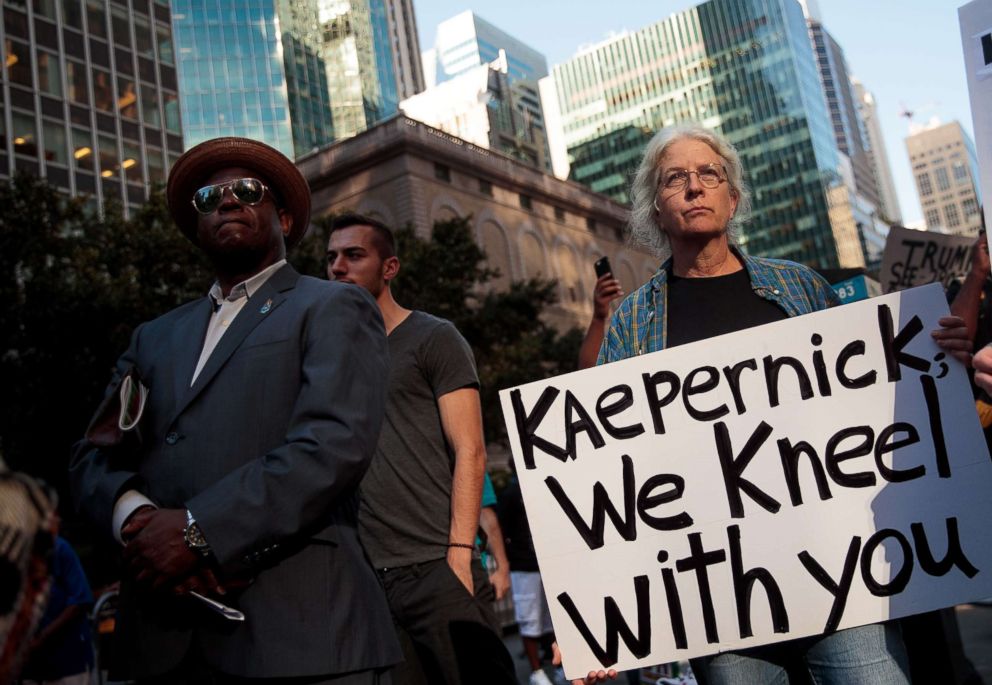
"The NFL has been engaged in constructive discussions with the NFL Players Association regarding the anthem and issues of equality and social justice that are of concern to many Americans," the league said in a written statement.
"The anthem will continue to be played before every game, and all player and non-player personnel on the field at that time are expected to stand during the presentation of the flag and performance of the anthem. Personnel who do not wish to do so can choose to remain in the locker room. We remain committed to working with the players to identify solutions and to continue making progress on important social issues affecting our communities."
Beyond the gridiron, Sterling Brown, a guard for the NBA’s Milwaukee Bucks, parked illegally in front of a Walgreens earlier this year. In Wisconsin, the infraction, by law, warrants a fine.
But Brown was instead arrested and officers used a stun gun on him.
The NBA, for its part, has taken a different stance and thus far avoided a public relations crisis. It has embraced its players' activism.
Trump, meanwhile, has criticized NBA players, too. Just last weekend, the game's biggest star -- LeBron James -- became a target of a presidential tweet.
It's hard to ignore race in the president's war of words with athletes. Race will be a central topic Sunday, too, when white supremacists descend onto the nation's capital on the anniversary of the deadly Charlottesville riot.
President Trump was blitzed with criticism last year when a few days after the riots he said "many sides" -- not just the white supremacists but the counterprotesters as well -- were to blame.
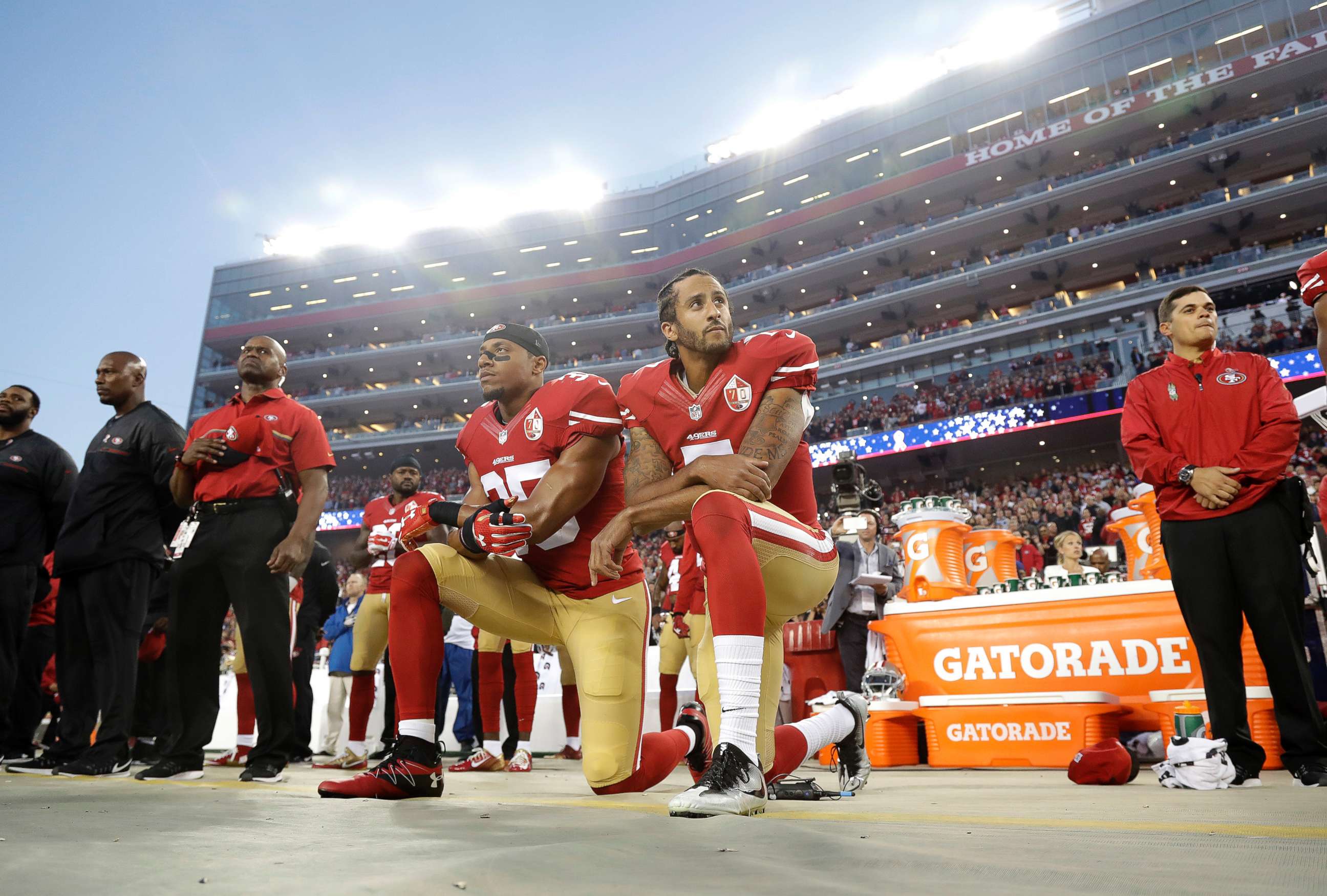
On Saturday, Trump tweeted that the riots "resulted in senseless death and division." He also condemned "all types of racism and acts of violence."
Many will watching, however, to see how Trump, who is on a working vacation in New Jersey and away from Washington, D.C., will respond after Sunday's rallies right outside the White House.
The protests are expected to last a few hours -- about the same amount of time as a football game on a Sunday afternoon.




